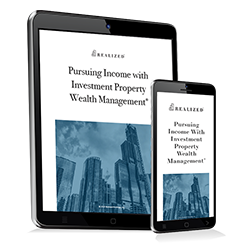
A Beneficiary IRA is also referred to as an Inherited IRA. It is an account opened by a person who inherits an existing IRA or an employer-sponsored retirement plan account when the original owner dies. An IRA, or Individual Retirement Account, is a means of allocating pre-tax income to investments so that they can grow in a tax-deferred manner for retirement savings. The amount of income that an individual can contribute to a traditional IRA on a tax-deferred basis is limited.
What Can You Do with a Beneficiary IRA?
Beneficiaries can’t add to an inherited IRA, but the funds in the account typically remain tax-deferred, and in many cases, the heir can withdraw the money. In addition, since spouses of deceased IRA owners can usually transfer such assets into their own retirement accounts, the inherited or beneficiary IRA is more commonly used for other heirs.
A spouse can roll the inherited IRA assets into an existing account or a separate one. The availability of withdrawals depends on the inheriting spouses’ age—if the inheritor is less than 59 ½, they will pay the penalty for withdrawals as they would for any other retirement account withdrawals.
Alternatively, the inheriting spouse can open a Beneficiary IRA using either the life expectancy method or the ten-year method. If the heir opts for the life expectancy plan, the account will be subject to RMDs (required minimum distributions) beginning no later than the end of the calendar year in which the decedent would have reached age 72 had they lived. The distribution rate is determined by the heir's life expectancy, according to their age in the year following inheritance. As with any distribution from a traditional IRA, the amounts withdrawn will be taxed at the rate in effect then.
Suppose an inheriting spouse chooses the Inherited IRA using the ten-year distribution method. In that case, money is available for withdrawal (at applicable tax rates) until the end of the tenth year after the original account holder died. At that time, the heir must take full distribution of any remaining assets and additional appreciation that has occurred during the interim. Another choice is to take a lump-sum distribution of the account upon inheritance. The beneficiary will not pay early withdrawal penalties, but the distribution is subject to income tax.
Options for Non-Spousal Heirs Differ
For heirs that are not spouses, they may either be eligible designated beneficiaries or non-eligible designated beneficiaries. Eligible beneficiaries include the following:
- Minor children of the decedent (the original account owner)
- Individuals chronically ill or permanently disabled
- Someone ten years or fewer younger than the decedent
These beneficiaries can open an inherited (beneficiary) account and choose from the life expectancy method, ten-year method, or lump-sum distribution method. Each has different rules covering required minimum distributions and complete asset withdrawals. If the original account owner was over 72 when they died, some regulations change slightly.
Roth IRAs Have Particular Requirements for Distribution
Inheriting a Roth IRA can be managed similarly, but since the contributions are made with taxed income, the tax liability on the withdrawals is handled differently than traditional IRAs. There is not typically exposure to the ten percent early withdrawal penalty. Still, heirs should be prepared in some cases to pay taxes on earnings, depending on the timing of withdrawals.
This material is for general information and educational purposes only. Information is based on data gathered from what we believe are reliable sources. It is not guaranteed as to accuracy, does not purport to be complete and is not intended to be used as a primary basis for investment decisions. Realized does not provide tax or legal advice. This material is not a substitute for seeking the advice of a qualified professional for your individual situation.



